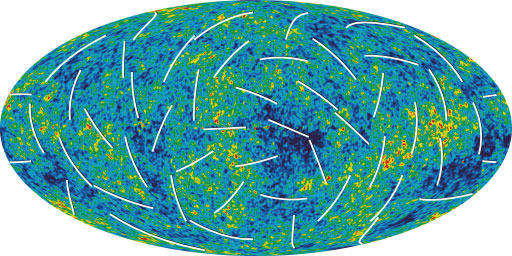March 17, 2006WMAP and Science Writing
I'm boggled by the amount of sophistication that goes into these cosmological analyses in an effort to ferret out the smallest hints of information. There is so much concentrated research centered on a single moment in time (the beginning of the universe) that the technical scrutiny has gone far beyond what anybody can really follow without being an expert. Yet the lay press still has no excuse for its total loss of common sense. As the physicists crunch their fancy models, the rest of the world seems to have lost its understanding of what a number is. The Associated Press is writing silly things like "earlier studies of WMAP data have determined that the universe is 13.7 billion years old, give or take a few hundred thousand years." The massive overstatement of the precision of the knowledge is a typo no doubt. But that's like saying "the tree was 137 years old, give or take a few hours." It is a silly statement on its face and any editor should have caught it. Why do people tune out numbers when reading about science? And a total loss of context is common in science writing. The headline "Evidence for Universe Expansion Found" in 2006 is like writing "Evidence Found that Planes can Fly" today. Is the purpose of WMAP really to verify the Hubble's 1917 observation that the universe is expanding? Perhaps nearly a century later astronomers have moved on and WMAP is trying to get a handle on more particular details? There is a gap that needs to be filled between the raw but indecipherable research and popular but incorrect science writing. Update: as the day wears on, the writing in the lay press is improving. The Christian Science Monitor writes well about it. Posted by David at March 17, 2006 06:36 AMComments
Post a comment
|
| Copyright 2006 © David Bau. All Rights Reserved. |
